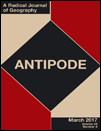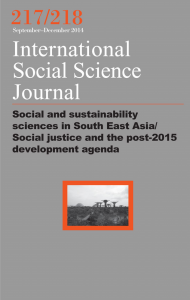International Day for the Eradication of Poverty
Despite progress, millions are still living in absolute poverty. With recent weather shocks causing global devastation, low-income communities are facing the hardest challenges in overcoming, and surviving, poverty. The Hunger Project estimates about 896 million people in developing countries live on $1.90 a day or less, and 22,000 children die each day due to conditions of poverty. This year marks the 25th anniversary of the declaration by the General Assembly, in its resolution 47/196 of 22 December 1992, of 17 October as the...



















1475-682X/asset/akdkey.jpg?v=1&s=eef6c6a27a6d15977bc8f9cc0c7bc7fbe54a32de)
1540-6210/asset/society_affiliation_image.gif?v=1&s=812a48e1b22880cc84f94f210b57b44da3ec16f9)